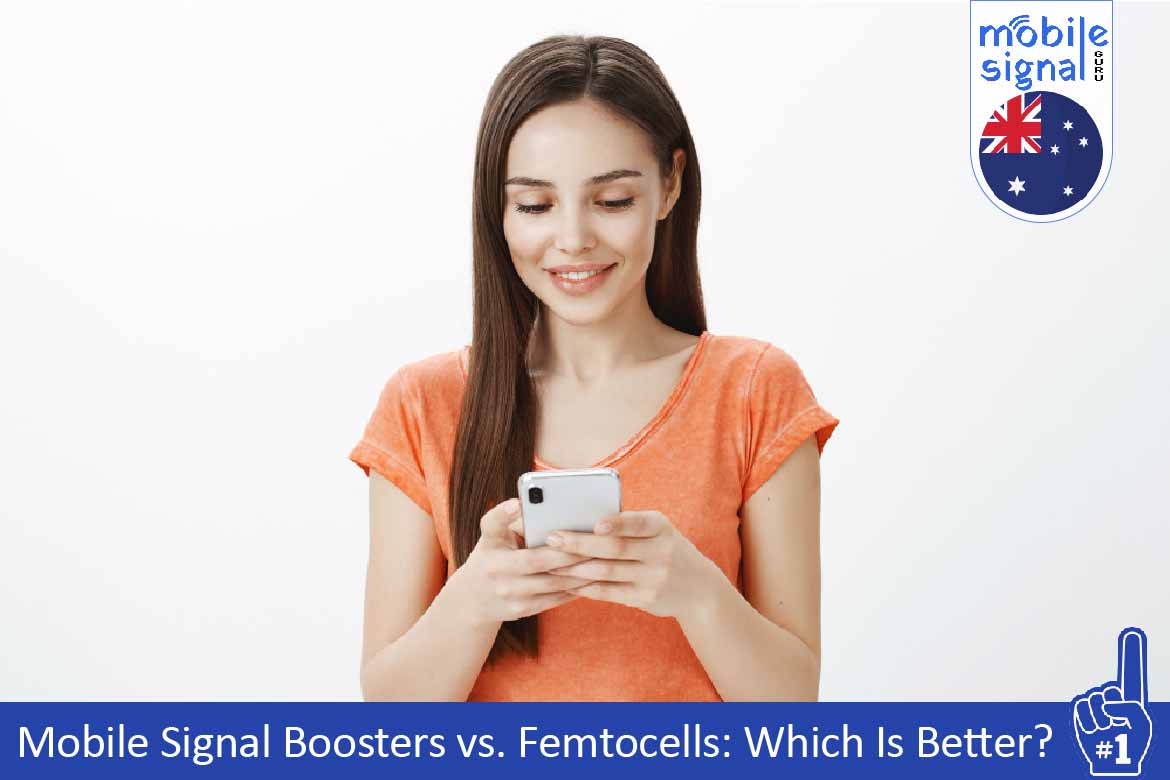In today’s connected world, a reliable mobile signal is essential. Weak or spotty coverage can disrupt calls, data usage, and overall connectivity. If you’re in Australia, you’ve likely experienced this issue, especially in rural areas or buildings with thick walls. Two common solutions to improve mobile signal are mobile signal boosters and femtocells. But which one is better for your needs? Let’s explore both options in detail.
What is a Mobile Signal Booster?
A mobile signal booster is a device that amplifies weak mobile signals. It captures the signal from a nearby tower and rebroadcasts it in your location.
How it Works
- Outdoor Antenna: Captures the signal from a mobile tower.
- Amplifier: Strengthens the captured signal.
- Indoor Antenna: Rebroadcasts the boosted signal inside your home, office, or car.
Advantages of Signal Boosters
- Easy Installation: Plug-and-play systems are available.
- Wide Coverage: Boosters can cover large areas, depending on the model.
- Carrier Compatibility: Works with all Australian carriers like Telstra, Optus, and Vodafone.
- No Internet Required: Uses existing mobile signals without relying on your internet connection.
Limitations of Signal Boosters
- Dependent on Outdoor Signal: Requires at least a weak signal outside to amplify.
- Legal Restrictions: In Australia, only carrier-approved boosters are allowed.
What Is a Femtocell?
A femtocell is a small device that acts like a miniature mobile tower. It connects to your home internet to create a strong mobile signal.
How it Works
- Internet Connection: Links to your broadband internet.
- Signal Transmission: Generates a mobile signal within its range.
- Mobile Devices: Connect to the femtocell like a regular mobile tower.
Advantages of Femtocells
- Great for No Signal Areas: Works even when there’s no mobile signal outdoors.
- Customizable Range: Typically covers a small to medium area, ideal for homes or small offices.
- Supports Multiple Users: Can handle several devices at once.
Limitations of Femtocells
- Requires Internet: Needs a reliable broadband connection to function.
- Limited Range: Usually covers smaller areas compared to signal boosters.
- Carrier-Specific: Only works with the carrier that provides the femtocell.
Key Differences Between Mobile Signal Boosters and Femtocells
| Feature | Mobile Signal Booster | Femtocell |
|---|---|---|
| Source of Signal | Amplifies existing outdoor signal | Creates a signal using broadband |
| Coverage Area | Wide, depending on the model | Limited to small spaces |
| Internet Required | No | Yes |
| Carrier Support | Works with multiple carriers | Carrier-specific |
| Ease of Setup | Easy to install | Slightly complex, requires configuration |
Which is Better for Australian Users?
Choosing between a signal booster and a femtocell depends on your specific needs and location.
When to Choose a Signal Booster
- You have a weak outdoor signal but no indoor coverage.
- You need coverage for a large area, like a home or office.
- You want a solution that doesn’t rely on the internet.
- You use multiple carriers or plan to switch in the future.
When to Choose a Femtocell
- You have no outdoor signal at all.
- You have a reliable broadband internet connection.
- You need coverage for a small area, like a single room or small home.
- You use only one mobile carrier.
Legal Considerations in Australia
In Australia, using mobile signal boosters requires compliance with strict regulations. Only carrier-approved boosters are legal. This ensures no interference with mobile networks. Femtocells are also carrier-specific, so you need to get one directly from your provider.
Popular Options in Australia
Mobile Signal Boosters
- Micro Boost Telstra 4G & 5G Signal Booster: Approved by Telstra, great for rural areas.
- Pro Boost Optus 4G & 5G Signal Booster: Optimized for Optus networks.
- Micro Boost Vodafone 4G & 5G Signal Booster: Tailored for Vodafone users.
Femtocells
- Telstra Smart Antenna: Ideal for Telstra customers with no outdoor signal.
- Optus Home Zone: Supports Optus users in low-signal areas.
Keep in mind that Femtocells only work with the network they are built for however, the mobile signal boosters may support multiple carriers.
Cost Comparison
| Expense | Mobile Signal Booster | Femtocell |
|---|---|---|
| Initial Cost | Moderate to High | Low to Moderate |
| Ongoing Costs | None | Internet costs apply |
Conclusion
Both mobile signal boosters and femtocells are excellent solutions for improving connectivity in Australia.
- Choose a signal booster if you have a weak outdoor signal and need broader coverage.
- Opt for a femtocell if you have no outdoor signal but a strong internet connection.
Before deciding, evaluate your specific needs, location, and carrier support. For help selecting the right device, consult Mobile Signal Guru, your trusted Australian expert in connectivity solutions.
Reliable mobile connectivity is no longer a luxury; it’s a necessity. Improve your signal today!
 Denmark (DKK)
Denmark (DKK) France (EUR)
France (EUR) Germany (EUR)
Germany (EUR) Ireland (EUR)
Ireland (EUR) Malta (EUR)
Malta (EUR) Netherlands (EUR)
Netherlands (EUR) New Zealand (NZD)
New Zealand (NZD) Norway (NOK)
Norway (NOK) Spain (EUR)
Spain (EUR) Sweden (SEK)
Sweden (SEK) UAE (AED)
UAE (AED) United Kingdom (GBP)
United Kingdom (GBP) Global Site (USD)
Global Site (USD)
